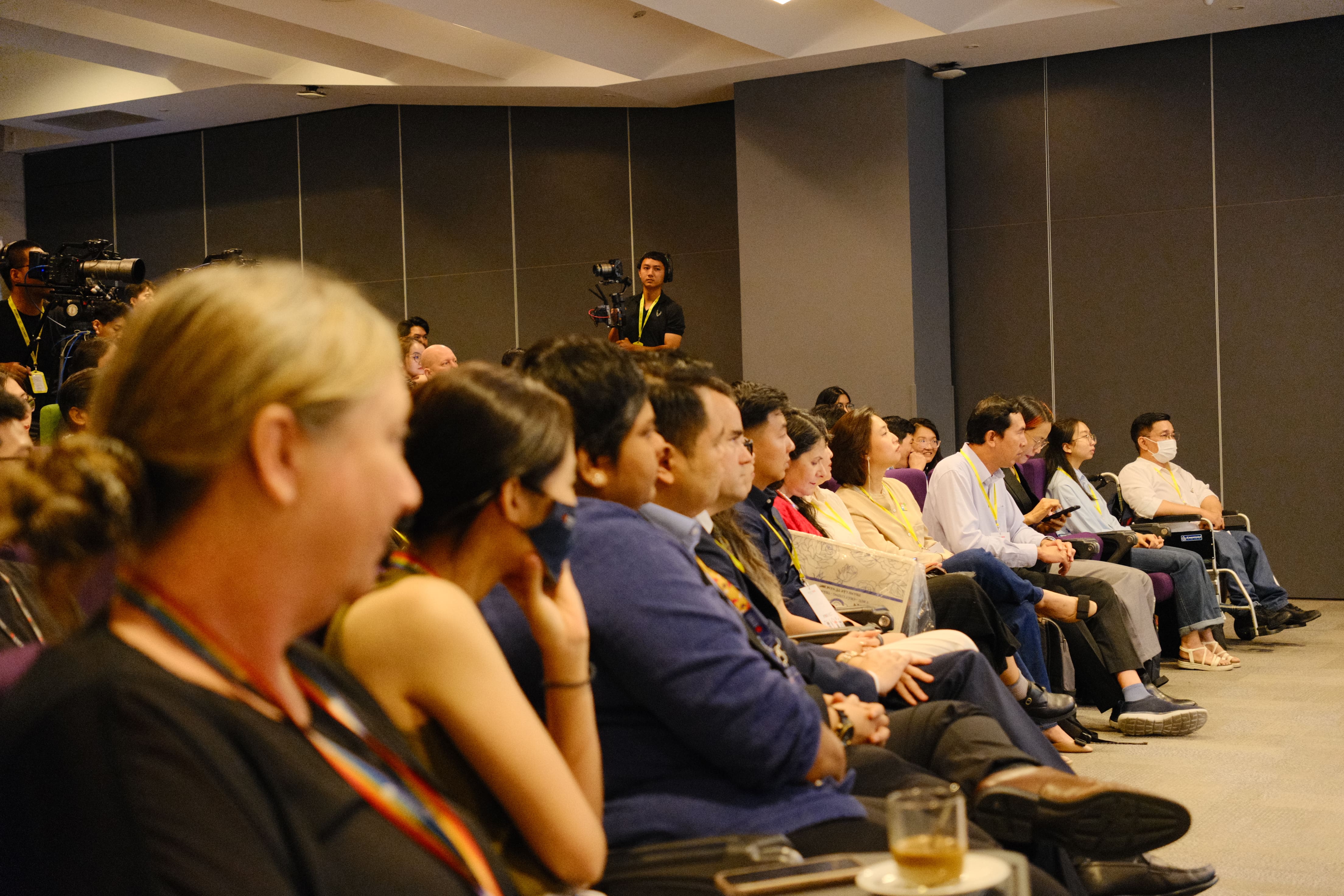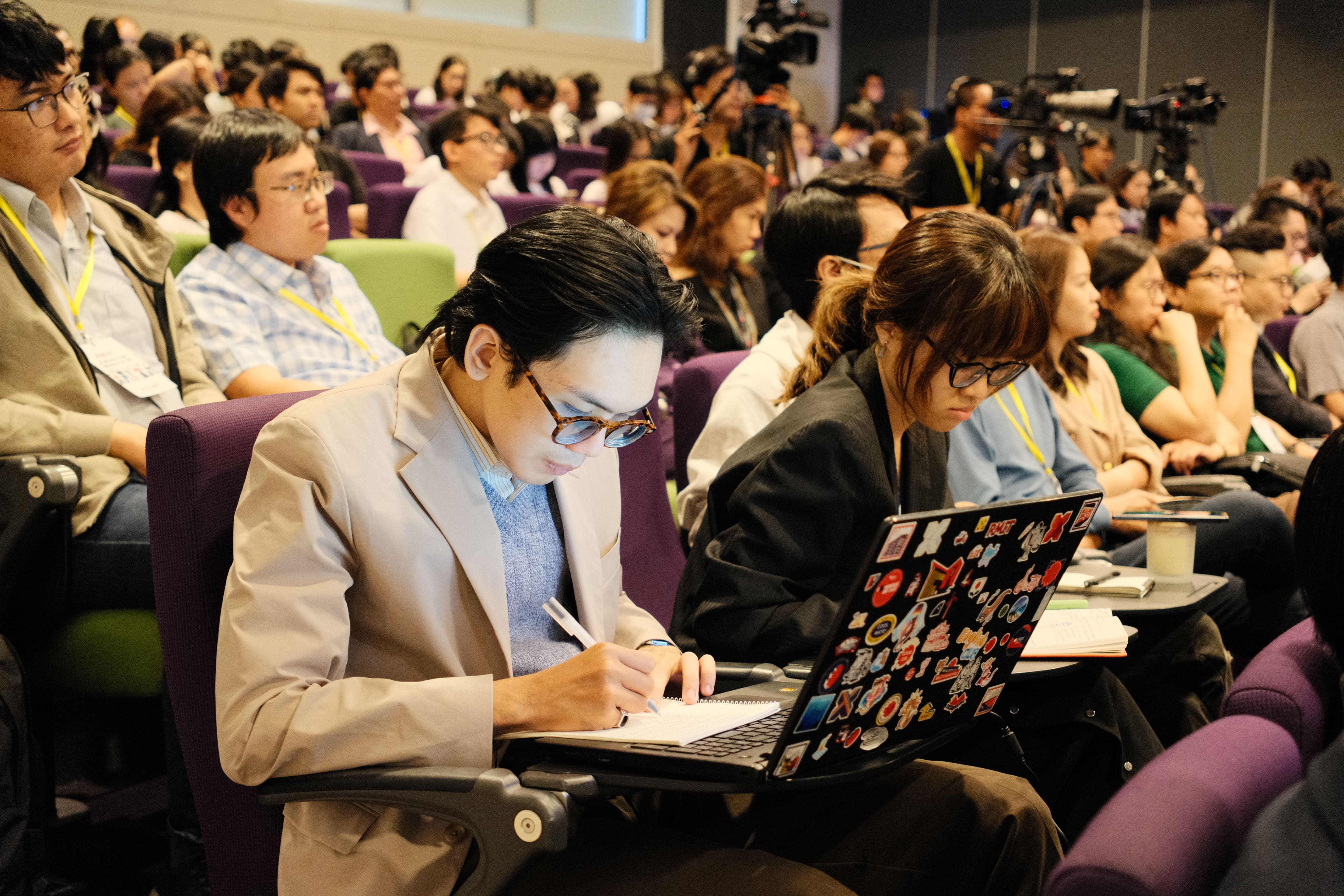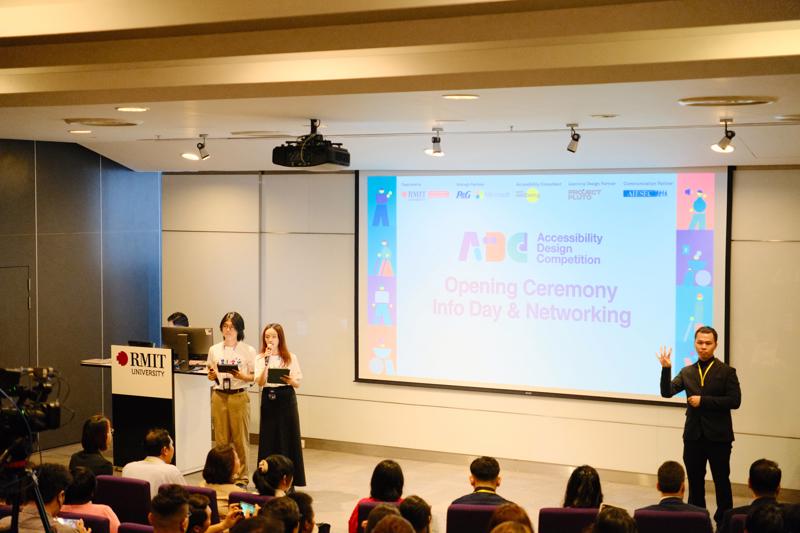The annual Accessibility Design Competition (ADC) has returned, with the theme “A world that works for all” to create innovative ideas that promote inclusivity for people with disabilities in the workplace.
Hosted by RMIT Careers, Alumni and Industry Relations in partnership with RMIT Wellbeing, the student competition runs for two months and encompasses a diverse range of activities. From master classes and workshops to mentoring sessions and networking, participants will have the opportunity to enhance their skills and knowledge.
This year, each team comprises three students from either the same or different universities. Every team is eligible for support from at least one industry partner.

Teams are tasked with proposing a solution aimed at supporting businesses in creating job opportunities and fostering an inclusive environment for people with disabilities. Alternatively, their solution may focus on assisting people with disabilities to improve their employability skills.
Students will acquire the knowledge and skills to develop accessibility solutions for individuals with a range of disabilities.
During the competition launch, representatives from Disability Research and Capacity Development (DRD) spoke of the importance of addressing the needs of people with disabilities. They emphasized the significance of a human-centered approach, and the necessity for policy and technological support to facilitate employment opportunities.
Mr. Colin Blackwell, Chairman of the Human Resources Committee at the World Bank’s Vietnam Business Forum and member of the ADC judging panel, highlighted that AI is advancing rapidly and posing challenges for businesses to keep pace with its evolution.
He noted that, in the past, companies had the luxury of time to consider initiatives for social impact, but that is no longer the case.
“I think businesses should rely more on these types of competitions,” he told the launch. “We need ideas and I am looking forward to seeing what great ideas come out of this”.
If a team’s idea is AI-related and advances to the second round of the competition, it will also have the opportunity to participate in the Microsoft ASEAN AI4A Hackathon, an annual event organized for teams in Southeast Asia to tackle problem statements and build AI-empowered solutions for a more inclusive and accessible society.
“According to the World Health Organization, there are almost 90 million people in Southeast Asia living with disabilities,” said Ms. Phan Tu Quyen, Small and Medium Corporates Lead at Microsoft. “At Microsoft, we believe that technologies, especially AI, play a pivotal role in empowering individuals with disabilities to actively engage in various aspects of daily life.”
“Therefore, I am proud to witness our next generation championing inclusivity through initiatives like the RMIT ADC and the Microsoft ASEAN AI4A Hackathon. Together, we will create more opportunities for the next generation, empowering them with AI skills and unleashing the incredible potential for AI to create inclusive solutions for people with disabilities, contributing to a better society.”
All 24 teams who succeed in passing the first round will get a shortcut to the second round of the Dream Internship 2024 Program by P&G.
Ms. Pham Khanh Phuong, a member of the ATP Team from RMIT Vietnam and the winner of the 2023 ADC, said that taking part in the ADC gave her confidence and the opportunity to collaborate with gifted individuals, and deepened her understanding of those with special needs to help bring about significant changes in their daily lives.
“What inspires me to work harder every day is the knowledge that I can learn from them and be inspired by them,” she emphasized.

Associate Professor Seng Kiat Kok, RMIT Vietnam Dean of Students, said the ADC has witnessed remarkable initiatives and outcomes over the last few years.
“RMIT Vietnam’s Country Commitment is to be a more civic-focused university with not only a strong focus on learning, teaching, and research, but also, importantly, with meaningful engagement and impact for all our stakeholders,” he continued. “The ADC is an incubator of ideas, bringing innovation that facilitates inclusivity and accessibility while significantly creating real impact for the communities we serve.”
This year’s ADC is part of World Creativity and Innovation Week, a worldwide community that celebrates all forms of creativity.









 Google translate
Google translate